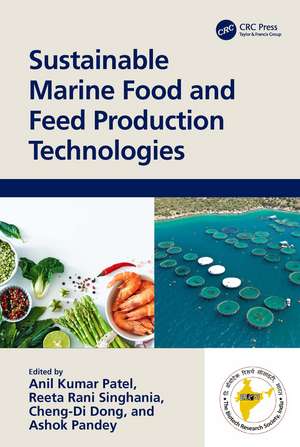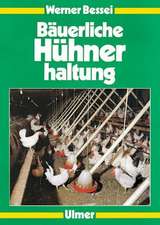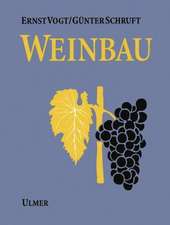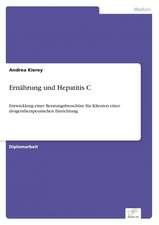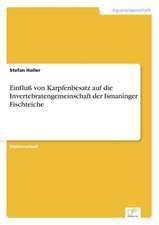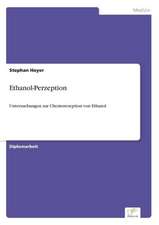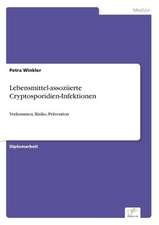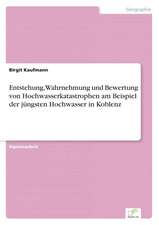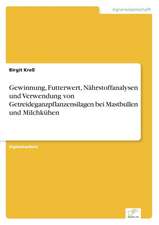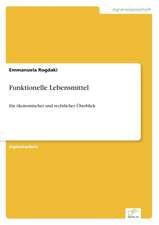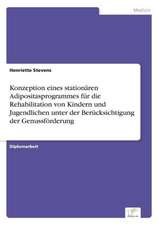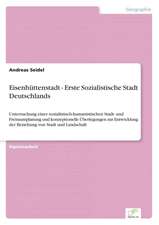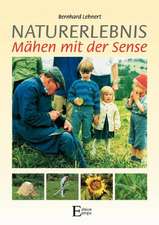Sustainable Marine Food and Feed Production Technologies: Sustainable Industrial and Environmental Bioprocesses
Editat de Anil Kumar Patel, Reeta Rani Singhania, Cheng-Di Dong, Ashok Pandeyen Limba Engleză Hardback – 10 aug 2023
Din seria Sustainable Industrial and Environmental Bioprocesses
- 30%
 Preț: 820.32 lei
Preț: 820.32 lei - 18%
 Preț: 1060.56 lei
Preț: 1060.56 lei - 18%
 Preț: 1119.45 lei
Preț: 1119.45 lei - 18%
 Preț: 1058.86 lei
Preț: 1058.86 lei - 18%
 Preț: 1273.48 lei
Preț: 1273.48 lei - 18%
 Preț: 1227.38 lei
Preț: 1227.38 lei - 18%
 Preț: 1057.89 lei
Preț: 1057.89 lei - 18%
 Preț: 1112.90 lei
Preț: 1112.90 lei - 18%
 Preț: 1119.57 lei
Preț: 1119.57 lei - 18%
 Preț: 1057.09 lei
Preț: 1057.09 lei - 18%
 Preț: 1117.75 lei
Preț: 1117.75 lei - 18%
 Preț: 1177.07 lei
Preț: 1177.07 lei - 18%
 Preț: 786.10 lei
Preț: 786.10 lei - 18%
 Preț: 845.11 lei
Preț: 845.11 lei - 15%
 Preț: 581.52 lei
Preț: 581.52 lei - 30%
 Preț: 819.90 lei
Preț: 819.90 lei - 30%
 Preț: 821.37 lei
Preț: 821.37 lei - 29%
 Preț: 653.49 lei
Preț: 653.49 lei
Preț: 1056.47 lei
Preț vechi: 1288.37 lei
-18% Nou
Puncte Express: 1585
Preț estimativ în valută:
202.15€ • 212.19$ • 167.79£
202.15€ • 212.19$ • 167.79£
Carte tipărită la comandă
Livrare economică 10-24 aprilie
Preluare comenzi: 021 569.72.76
Specificații
ISBN-13: 9781032354484
ISBN-10: 1032354488
Pagini: 185
Ilustrații: 16 Tables, black and white; 16 Line drawings, black and white; 9 Halftones, black and white; 25 Illustrations, black and white
Dimensiuni: 178 x 254 x 13 mm
Greutate: 0.5 kg
Ediția:1
Editura: CRC Press
Colecția CRC Press
Seria Sustainable Industrial and Environmental Bioprocesses
ISBN-10: 1032354488
Pagini: 185
Ilustrații: 16 Tables, black and white; 16 Line drawings, black and white; 9 Halftones, black and white; 25 Illustrations, black and white
Dimensiuni: 178 x 254 x 13 mm
Greutate: 0.5 kg
Ediția:1
Editura: CRC Press
Colecția CRC Press
Seria Sustainable Industrial and Environmental Bioprocesses
Public țintă
Academic, Postgraduate, and ProfessionalNotă biografică
Dr Anil Kumar Patel is currently an Associate Professor at the Institute of Aquatic Science and Technology, National Kaohsiung University of Science and Technology, Kaohsiung, Taiwan. He is also Senior Scientist (Honorary) at the Centre for Energy and Environmental Sustainability – India. He obtained his MSc degree in Biotechnology from Guru Ghasidas University, Bilaspur, India and PhD in Biotechnology from the North Maharashtra University, Jalgaon, India. His broad post-doctoral research was carried out in several overseas labs basically on waste-to-wealth. The area of his current work is mainly environmental bioengineering, broadly focused on waste to fuel/non-fuel products program utilizing bacterial, and algal systems. Previously he worked at Research Professor at Department of Chemical and Biological Engineering, Korea University, Seoul and HKBU, Hong Kong on algal biorefinery project and solid waste management. He worked at University of Hawaii, USA on removal of sulfur from gaseous phase of treated S-containing wastewaters by applying designer-biochar which was used for sulfur nutrition in plants. He gained experience in biohythane production using ethanol plant wastes at DBT-IOC Bioenergy Centre, India, also on membrane bioreactor for continuous biohydrogen production as well as VFA separation from industrial waste at Institute Pascal, France. He has been a visiting researcher at EPFL, Switzerland to work on biomass pretreatments. In these studies, both bench-scale and pilot-scale studies were undertaken with techno-economic analysis. He has over 100 publications/communications, which include 04 patents, 80 original and review articles, 22 book chapters and 2 conference proceedings.
Dr Reeta Rani Singhania is currently a Research Associate Professor at the Department of Sustainable Environment Research Center, National Kaohsiung University of Science and Technology (NKUST), Kaohsiung, Taiwan. She is also Senior Scientist (Honorary) at the Centre for Energy and Environmental Sustainability – India. She worked at CSIR-National Institute for Interdisciplinary Science and Technology, Trivandrum for PhD studies and obtained the degree in Biotechnology in 2011. During 2011-2012, she worked as post-doctoral fellow at University Blaise Pascal, Clermont-Ferrand, France and 2012-2017 at DBT-IOC Centre for Advanced Bioenergy Research, Faridabad as “DBT-Bioscience Energy Overseas Fellow”. Subsequently, she joined the Centre for Energy and Environmental Sustainability, India and worked as Chief Scientist during 2018-2020. Her major research interests are in Microbial & Enzyme Technology and Bioprocess Technology, with current focus on biofuels from lignocellulosic biomass. She has 16 patents, edited three books and published more than 120 research articles, book chapters and conference communications with more than 7100 citations and h index of 32 (Google scholar).
Dr. Cheng-Di Dong is a Distinguished Professor at the Department of Marine Environmental Engineering at National Kaohsiung University of Science and Technology (NKUST). He is also the Dean of College of Hydrosphere Science and the Director of Sustainable Environment Research Center (SERC) of NKUST. He earned a Ph.D. degree in Environmental Engineer from University of Delaware in 1993. His current research interests are broadly clustered in the areas of monitoring and remediation of contaminated water, soil and sediments. He is particularly interested in developing fate and transport of contaminants in marine sediments, and remediation of contaminated sediments for the purpose of reuse sediment materials using physical, chemical and biological processes. Prof. Dong has participated in the scientific committee of several conferences and associations and serves as a reviewer in a wide range of international renowned journals. He has published more than 291 papers in leading international journals, 8 patents, 5 book chapters, and edited 8 special issues of scientific journals.
Professor Ashok Pandey is currently Distinguished Scientist at the Centre for Innovation and Translational Research, CSIR-Indian Institute of Toxicology Research, Lucknow, India and Distinguished Professor at the Sustainability Cluster, School of Engineering, University of Petroleum and Energy Studies, Dehradun, India. He is also Executive Director (Honorary) at the Centre for Energy and Environmental Sustainability – India. Formerly, he was Eminent Scientist at the Center of Innovative and Applied Bioprocessing, Mohali and Chief Scientist & Head of Biotechnology Division and Centre for Biofuels at CSIR’s National Institute for Interdisciplinary Science and Technology, Trivandrum. His major research and technological development interests are industrial & environmental biotechnology and energy biosciences, focusing on biomass to biofuels & chemicals, waste to wealth & energy, industrial enzymes, etc. Professor Pandey is Adjunct/Visiting Professor/Scientist in universities in France, Brazil, Canada, China, Korea, South Africa, and Switzerland and also in several universities several in India. He has ~1550 publications/communications, which include 16 patents, 108 books, ~850 papers and book chapters, etc with h index of 114 and >56,500 citations (Goggle scholar). Professor Pandey is the recipient of many national and international awards and honours, which include Highly Cited Researchers (top 2% in the world), Rank no 1 in India in Microbiology under Enabling and Strategic Technologies sector and No 4 in overall in science and engineering- Elsevier Citation Report (2021); Highly Cited Researchers (h>100), Google Scholar Citations, 14th Edition, BETA list (2021); Distinguished Fellow, the Biotech Research Society, India (2021); Highest Cited Researcher (Top 0.1% in the world), Clarivate Analytics, Web of Science (2018-till-date); Top scientist in Biotechnology (no 1 in India and no 8 in the world), Stanford University world ranking (2020, 2021)
Dr Reeta Rani Singhania is currently a Research Associate Professor at the Department of Sustainable Environment Research Center, National Kaohsiung University of Science and Technology (NKUST), Kaohsiung, Taiwan. She is also Senior Scientist (Honorary) at the Centre for Energy and Environmental Sustainability – India. She worked at CSIR-National Institute for Interdisciplinary Science and Technology, Trivandrum for PhD studies and obtained the degree in Biotechnology in 2011. During 2011-2012, she worked as post-doctoral fellow at University Blaise Pascal, Clermont-Ferrand, France and 2012-2017 at DBT-IOC Centre for Advanced Bioenergy Research, Faridabad as “DBT-Bioscience Energy Overseas Fellow”. Subsequently, she joined the Centre for Energy and Environmental Sustainability, India and worked as Chief Scientist during 2018-2020. Her major research interests are in Microbial & Enzyme Technology and Bioprocess Technology, with current focus on biofuels from lignocellulosic biomass. She has 16 patents, edited three books and published more than 120 research articles, book chapters and conference communications with more than 7100 citations and h index of 32 (Google scholar).
Dr. Cheng-Di Dong is a Distinguished Professor at the Department of Marine Environmental Engineering at National Kaohsiung University of Science and Technology (NKUST). He is also the Dean of College of Hydrosphere Science and the Director of Sustainable Environment Research Center (SERC) of NKUST. He earned a Ph.D. degree in Environmental Engineer from University of Delaware in 1993. His current research interests are broadly clustered in the areas of monitoring and remediation of contaminated water, soil and sediments. He is particularly interested in developing fate and transport of contaminants in marine sediments, and remediation of contaminated sediments for the purpose of reuse sediment materials using physical, chemical and biological processes. Prof. Dong has participated in the scientific committee of several conferences and associations and serves as a reviewer in a wide range of international renowned journals. He has published more than 291 papers in leading international journals, 8 patents, 5 book chapters, and edited 8 special issues of scientific journals.
Professor Ashok Pandey is currently Distinguished Scientist at the Centre for Innovation and Translational Research, CSIR-Indian Institute of Toxicology Research, Lucknow, India and Distinguished Professor at the Sustainability Cluster, School of Engineering, University of Petroleum and Energy Studies, Dehradun, India. He is also Executive Director (Honorary) at the Centre for Energy and Environmental Sustainability – India. Formerly, he was Eminent Scientist at the Center of Innovative and Applied Bioprocessing, Mohali and Chief Scientist & Head of Biotechnology Division and Centre for Biofuels at CSIR’s National Institute for Interdisciplinary Science and Technology, Trivandrum. His major research and technological development interests are industrial & environmental biotechnology and energy biosciences, focusing on biomass to biofuels & chemicals, waste to wealth & energy, industrial enzymes, etc. Professor Pandey is Adjunct/Visiting Professor/Scientist in universities in France, Brazil, Canada, China, Korea, South Africa, and Switzerland and also in several universities several in India. He has ~1550 publications/communications, which include 16 patents, 108 books, ~850 papers and book chapters, etc with h index of 114 and >56,500 citations (Goggle scholar). Professor Pandey is the recipient of many national and international awards and honours, which include Highly Cited Researchers (top 2% in the world), Rank no 1 in India in Microbiology under Enabling and Strategic Technologies sector and No 4 in overall in science and engineering- Elsevier Citation Report (2021); Highly Cited Researchers (h>100), Google Scholar Citations, 14th Edition, BETA list (2021); Distinguished Fellow, the Biotech Research Society, India (2021); Highest Cited Researcher (Top 0.1% in the world), Clarivate Analytics, Web of Science (2018-till-date); Top scientist in Biotechnology (no 1 in India and no 8 in the world), Stanford University world ranking (2020, 2021)
Cuprins
Chapter 1 Marine Algae as a Source of Carotenoids: Bioactivity and Health Benefits. Chapter 2 Innovative Extraction Methods to Obtain Bioactive Compounds from Aquatic Biomass. Chapter 3 Bioactive Polysaccharides from Macroalgae. Chapter 4 Marine Microalgae in Food and Health Applications. Chapter 5 Filler Feed from Marine Micro- and Macroalgae. Chapter 6 Marine Collagen: Valorization of Marine Wastes for Health Care and Biomaterials. Chapter 7 Application of Functional Aquafeed in Sustainable Aquaculture. Chapter 8 Sustainable Development for Shrimp Culture: A Critical Analysis. Chapter 9 Biochar as a Potential Candidate for Removal of Pollutants from Aquaculture. Chapter 10 Valorization of Seafood Processing Discards. Chapter 11 Effect of Microplastics on Marine Ecosystems. Chapter 12 Role of Marine Algae for GHG Reduction/CO2 Sequestration: Strategies and Applications.
.
.
Descriere
This valuable reference book covers the application of marine resources like algae, fishes, shrimp, to address food challenges of the world. The book discusses interesting topics like exploitation of marine wastes as nutraceuticals, cultivation, processing, and production of seafood.
